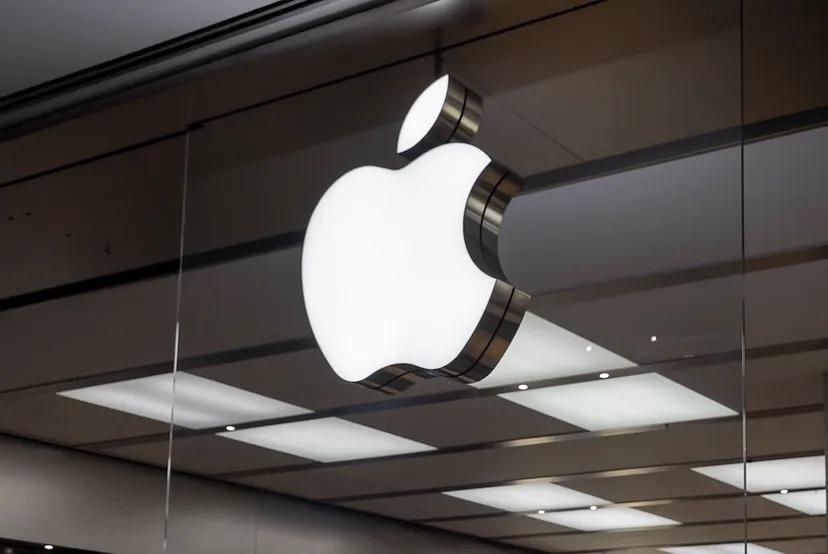Apple Shares Hit Worst Day in Five Months as Q4 iPhone Sales in China Fall 25%
TMTPOST -- Apple Inc. shares closed 4% lower, ending Thursday with their largest daily losses since August 5, 2024. Shares sold off after latest data highlighted sluggish iPhone sales recorded in China, the world’s No.1 smartphone market.
Credit:Ming-Chi Kuo
Apple shipped 13.1 million iPhones in the fourth quarter of 2024 in mainland China, falling 25% from a year ago, according to market research firm Canalys. While Apple still retains the top spot in its traditional peak season by shipments, the double-digit year-over-year (YoY) decrease underscored intensified competition in China. Vivo and Huawei followed closely and both shipped around 12.9 million units, ranking second and third for the quarter ended December. All the top three vendors gained a market share of 17%. Xiaomi ranked fourth that quarter with 12.2 million units shipped, achieving the highest annual growth among the top vendors at 29%. OPPO ranked fifth with 10.6 million units shipped, achieving a year-on-year growth of 18% in the last quarter.
Shipments of the mainland China smartphone market grew 5% YoY to 77.4 million units, driven by the high-end peak season, government subsidies and year-end promotions, Canalys reported.
For the full year 2024, the market shipped 285 million units with a 4% YoY increase, marking a recovery following two years of decline. The year also saw Apple ceded the top selling mobile spot to local brands amid intense competition.
Apple delivered 42.9 million units in 2024 with a market share of 15%, down from shipments of 51.8 million units and a share of 19% for the previous year, Canalys data showed. As Apple shipments declined 17% YoY, vivo, the new leader for the year 2024 shipped 49.3 million units with a growth of 11%, capturing 16% of the market. Huawei was ranked the second with shipments of 46 million units and a share of 16%. Huawei achieved an impressive YoY increase of 37% in delivery for the year. Apple, OPPO and HONOR followed in third, fourth, and fifth place respectively, each holding a 15% market share.
"Intense competition has led to a constantly shifting landscape, with vendors actively seeking to expand investments in their advantageous field," commented Amber Liu, Research Manager at Canalys.
"Apple and its iPhone 16 series maintained the top spot in the fourth quarter but faced growing competitive pressure from domestic flagship devices," said Liu. "In addition to driving sales through seasonal promotions, Apple is enhancing its high-end competitiveness and user retention by improving retail experiences through channel management, offering trade-in programs and expanding coverage of interest-free installment plans."
Earlier this week, Ming-Chi Kuo, a reliable Apple analyst who is well-known for his accurate predictions over a decade, flagged near-term risks for the iPhone maker. In his note released on Monday, the analyst at TF International Securities expected iPhone shipments in the first half of 2025 to decline about 6% YoY, though shipments for the first quarter would be roughly flat YoY due to front-loading in January ahead of the incoming Trump administration’s tariff policy.
According to Kuo, overall smartphone shipments in China in December were about flat compared with the same month in 2023, but iPhone shipments that month dropped about 10%-12% YoY, reflecting a continued slide in Apple’s Chinese market share.
Kuo said he is not bearish on the long-term prospects of Apple Intelligence, the personal artificial intelligence (AI) system that Apple unveiled in last June and is still not available in China yet. However, Kuo’s latest supply chain survey indicated Apple Intelligence has not boosted iPhone replacement demand, and he also found its appeal has significantly declined compared to cloud-based AI services, which have advanced rapidly in subsequent months.
"There is no evidence of Apple Intelligence’s ability to benefit hardware replacement cycles or service business. As such, it should be cautious of potential downside risks created by earlier market over-optimism,” Kuo wrote.
Disclaimer: Investing carries risk. This is not financial advice. The above content should not be regarded as an offer, recommendation, or solicitation on acquiring or disposing of any financial products, any associated discussions, comments, or posts by author or other users should not be considered as such either. It is solely for general information purpose only, which does not consider your own investment objectives, financial situations or needs. TTM assumes no responsibility or warranty for the accuracy and completeness of the information, investors should do their own research and may seek professional advice before investing.


